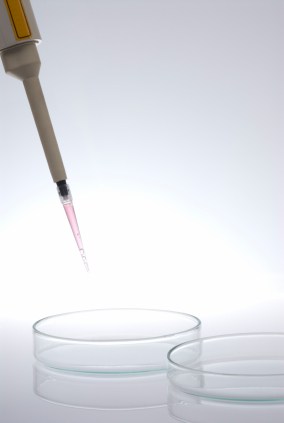Once upon a time, there were very few options for infertile couples. If you couldn’t have a baby on your own, your only real option was to get put on a long waiting list and adopt a baby locally. Today, there are many more options for infertile couples, available to help you start a family, some of which even allow you to be the biological parents of your child even if you can’t carry the baby yourself.
Medical Options for Infertile Couples
Medications
If your
infertility is the result of a hormonal imbalance causing you to either skip ovulation completely or ovulate too late in your cycle (an issue that can make it difficult for the fertilized embryo to have enough time to implant into the uterus), certain fertility medications may help. Two of the most common are clomiphene and gonadotropin drugs, which help stimulate ovulation. In many cases, the medications are enough on their own, but for more difficult medical issues, you may need to combine them with advanced reproductive technology.
Advanced Reproductive Technology
In many cases, being infertile does not necessarily mean that you cannot carry your own baby, it just means you cannot conceive without a little assistance. There are several options available, depending on your medical issue. Advanced reproductive technology is a relatively broad term that encompasses procedures such as
in-vitro fertilization, intrauterine insemination, and other methods that use the latest technology to overcome reproductive challenges. To get started, you will need to find a good fertility specialist. Your regular gynecologist should be able to point you in the right direction. Keep in mind that some of these methods can be costly, and you will most likely need to take certain medications to help increase the chances of success. They are ideal options for infertile couples dealing with issues within the fallopian tubes in the women or related to low sperm count in the men.
Surgery
Infertility related to
blocked fallopian tubes may be treated by surgically clearing the tubes, either by removing blockage or opening up tubes that have collapsed. Most surgeries are performed laproscopically through tiny holes in the abdomen, and can be done as outpatient procedures. In some cases, surgery can make the situation worse due to the resulting scar tissue, but your doctor will be able to give you a better idea of your overall chances of success based on your personal medical condition.
Surrogacy
This is quickly becoming one of the most popular options for infertile couples because it allows the prospective parents to have more involvement in the entire process, from conception to birth. Like adoption, you have several options from which to choose when considering surrogacy. If you can produce healthy eggs, but just can’t carry a baby to term, you may be able to implant your egg fertilized with your partner’s sperm into another woman’s uterus. She then carries your biological baby to term. If using your eggs are not feasible, your surrogate may use her own eggs and your partner’s sperm. If your partner’s sperm is out the question, you can use your eggs and donor sperm. If both you and your partner are infertile, you can use donor sperm and eggs. You get to choose the surrogate, be part of the pregnancy, and in most cases, be present for the birth of your child.
These are some medical options for infertile couples. There are non medical options available too. Before choosing any one, it is best to check with your doctor.


